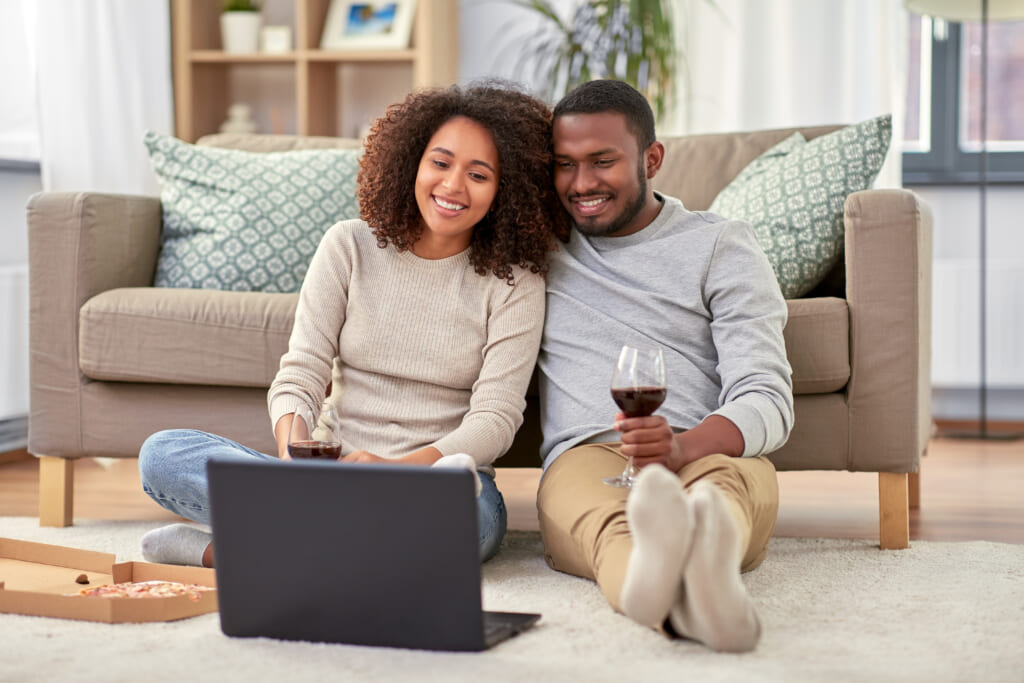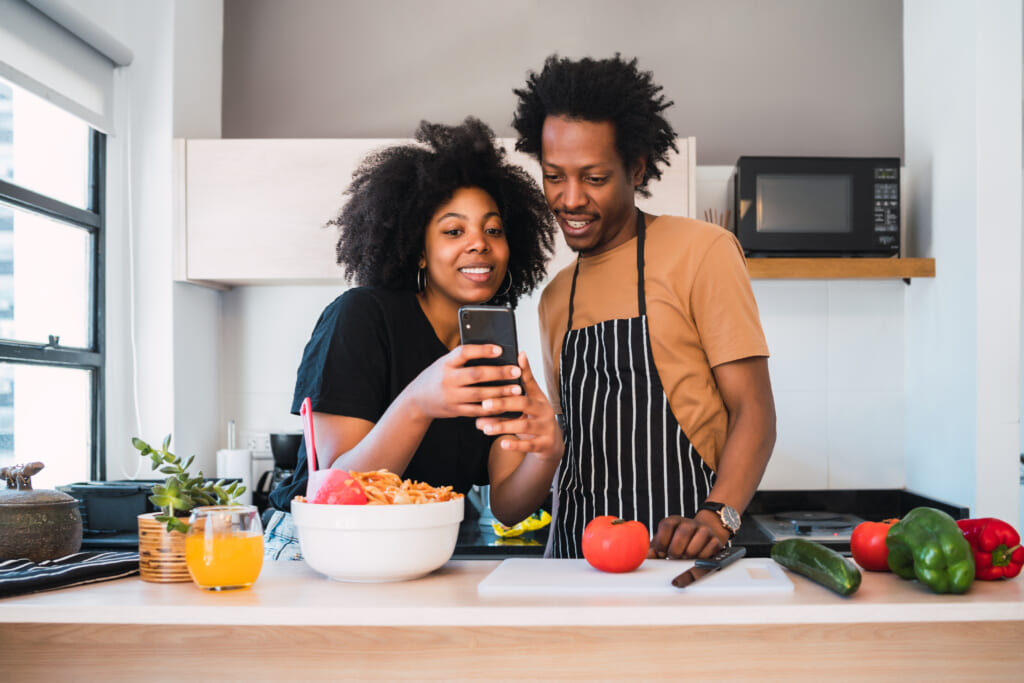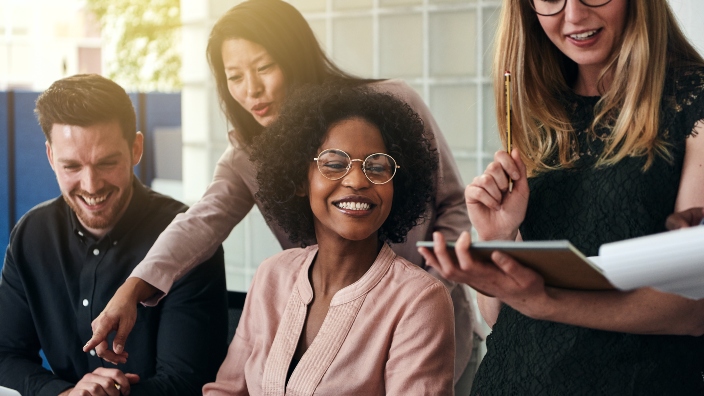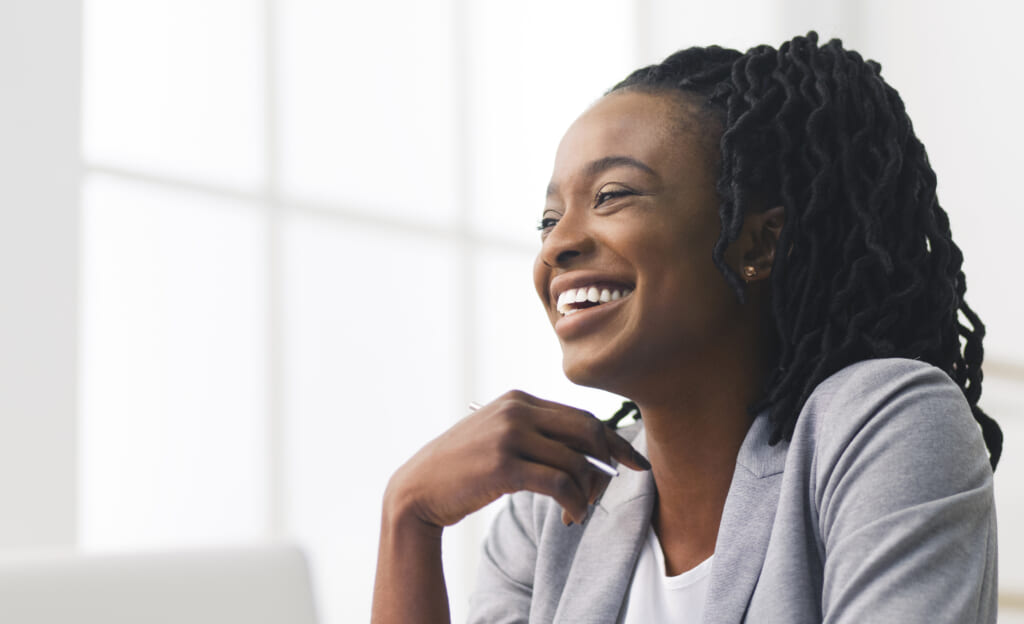Recently, I returned to the world of online dating. Or rather, I have attempted to date recently. In the early stages of the pandemic, amidst acclimating to a new job, the protests, and managing my anxiety around catching COVID-19—the loss of the sole person in my pandemic bubble hit me hard. To be clear, my partner and I broke up. So, I soon decided that I could not survive complete isolation and figured why not try my hand at online dating and get back on the horse—or whatever that metaphor is.
Online dating is overwhelming, but you know this, probably. At this point, numerous contemporary comedies have highlighted the horror that is online dating. Think HBO’s Insecure, Netflix’s Master of None or literally anything on television that portrays people dating who are under the age of 45. Art imitates life and true to art, my online dating experience leaves much to be desired.
The process of weeding through so many profiles, keeping track of multiple conversations and remembering who does what is a lot. It feels like an unending house hunt—you could find your forever home, a temporary rental or something that was advertised as mansion but is really lean—you just never know.
Oddly, when I first moved to the DC area for grad school, I loved online dating—it felt like a great way to meet new people in a new area. As an extrovert, I have always loved meeting people—listening to their weird idiosyncrasies, hearing the pedantic drama of their jobs and attempting to charm folks with my off brand awkward Black girl humor.

But now, several years later and months deep into an international pandemic, online dating doesn’t quite sparkle like it used to. It’s harder to strike up and sustain interesting conversations online and in-person and frankly, after spending countless hours by myself (i.e. with my plants), I don’t much care to entertain new people anyway. But, I begrudgingly returned to Hinge—the app meant to be deleted, that I seemingly could not keep deleted.
Late one night, I matched with a young Haitian American man. We quickly exchanged messages about previous failed relationships and that we were both searching for exclusivity. He eagerly invited me for a date the next morning, barely 12 hours later. We had some trouble pinning down a location as my COVID anxiety barred me from eating indoors.
We settled on a Starbucks a mere 3 minute walk from my apartment. However, I woke up the next morning, peered out my window to see steady freezing rain and quickly texted my date to flake. I wasn’t smitten enough to flout my stringent “no indoor dining” rule nor was I about to sit outside Starbucks shivering with an umbrella trying to maintain a pleasant yet coy demeanor.
I probably should have followed my first instinct and let this potential connection dissipate into thin air. He was a poor texter and I hadn’t had high hopes for the date. For whatever reason, I agreed to reschedule a few days later and met with him for a walk around town. I half-heartedly got ready for the date—a pair of pleather joggers, some sneakers and a tee plus my warm brown coat. I walked out of my apartment, crossed the street and quickly cut through the Panera parking lot.
Ellsworth Drive, the center of Downtown Silver Spring looked like a shell of its normal self. Although the buildings were recently painted bright colors: orange, red, yellow, green and blue with equally loud murals to match, the street was desolate. There was a just a person or two, here or there but normally the street would be crowded—bustling with folks popping in and out of retail stores like DSW, H&M or the Loft.

There would be a group of angsty young men in torn jeans skateboarding up and down the street. The tables outside of Potbelly and Starbucks would be dotted with older Ethiopian men chatting in Amharic. Instead it was just grey and empty. I stood outside Starbucks, nervously waiting for my date—unsure whether I’d recognize his face under the mask. This was the part I hated, awkwardly staring into strangers’ faces—hoping they’ll light up with recognition. I texted to let him know I was outside. Shortly later, he appeared. He seemed nice enough in person. Better yet, he was employed, relatively COVID-conscious and had a burgeoning career in photography.
I don’t remember what he looked like or sounded like to be honest—a testament to how uninterested I was. However, our conversation flowed much more fluidly than expected. I liked him far more than I thought I would, but what stood out most about the date was the moment he said something to the effect of: ‘I have a question. Has anyone ever told you, you sound kind of white?’
The question took me aback. I hadn’t heard something like that in years. As a New Yorker (albeit from the Westchester County suburbs), I appreciated his candor and authenticity—just his general willingness to say something that easily could have shut down the whole date. He went on to say that I sounded white with an undercurrent of Black—something he apparently liked. I don’t think he meant “sound White” as a stand in for speaking what’s considered Standard English, without slang. He meant the actual tenor of my voice was white.
His question didn’t ruin the date; in fact—it made him far more memorable than anything else that happened. After we had gotten our drinks (a chai tea latte for me), we meandered down Georgia Ave, a major street that leads directly to Washington D.C. We eventually wondered around a park talking about life in general—careers, Black hair, current Netflix binges.
Our conversation continued until nighttime set in and the wind became unbearable. We didn’t meet up again because he presumptuously invited himself over to my apartment and I really can’t stand when men who do that—even before the COVID-19 pandemic. Weeks and even months after our encounter, I couldn’t stop thinking about his question. Did I sound kind of white?
For nearly a decade now, I have lived in the DMV area for grad school and a little after. It has been generally six to seven years since someone has commented on the sound of my voice or voiced surprise at my non-Whiteness. In the early years, twice, when applying for jobs, I had met two Black women who told me outright, they thought I would be white.

They had seen PhD student at University of Maryland on my resume, talked to me on the phone and assumed whiteness. Neither were upset that I turned out to be Black and I thought little of those encounters. Maybe the rise of the term #Blackexcellence has dissuaded folks from making assumptions about racial background and education level. However, there remains that pesky question about my voice itself.
The comments on my voice have largely stopped. I am not sure if that is because society has become collectively woke-er (thanks Twitter & the internet) and people realize that Blackness has a range of sounds, shapes and sizes OR if it’s just not politically or socially acceptable to tell someone you barely know they sound white. Or my favorite theory—perhaps in the years that I’ve lived in the DMV region my sound has adapted and shifted—taking on a Blacker cadence—whatever that might mean.
I think about the ways that I adapted and thrived in white educational spaces and maybe sounding like the third Gilmore girl was one of them. I have been thinking about code switching and sound-shifting a lot—doing what it takes to survive in White space, especially during the early 2000s, when colorblind was the rule and assimilation was mandatory. Any number of white influences could be the culprit for the sound of my voice—perhaps too much white TV, growing up in the suburbs, having a small fractured family that has lived in white suburbs since the Great Migration (maybe I’m from a clan of “white sounding” Northern Negresses?!), maybe even all those acting classes with white kids?
The more I reflected, the more I could think of other instances where men (Black) told me I sounded—not white specifically, but well educated or what they referred to as “classy.” These men were surprised by the sound of my voice but also found it desirable. I can’t help but think how historically sounding “well off” or “well educated” has been associated with whiteness. I just think about all the ways I have unintentionally benefitted from associations with whiteness, which means on the other end of the spectrum others have suffered immeasurably for not being positioned closer.
For years I grew up hearing that employers were less likely to call back applicants with Black sounding names. Time and time again research has proven that to be true—even now. Research from 2016 found that employers were twice as likely to respond to “whitened resumes” where African Americans passed as white, suppressing any information that might reveal their true racial identity. Some even switched out middle names for first names.

Even the employers who touted diversity discriminated along the same lines. A 2015 study from Stanford University found that teachers were much more likely to brand students with Black sounding names as trouble makers. Given the rise of alt-right during the Trump years and the increased backlash against critical race theory, I don’t believe any of that discrimination has lessened.
Ever resilient, some folks purposefully code switch or use a “white voice” when necessary. In the last season of the hit Netflix show Big Mouth, popular kid Devon shows Missy how he dials up or down his Blackness—code switching based on his audience. Honestly, Big Mouth handled the idea of code switching and Blackness shockingly well (showing multiple perspectives on it). Code switching refers to the specific words you use; maybe you’re “finna pull up to the function” when you’re with one group of friends but with another set you’d tell them “yes, I will be in attendance.” That’s an extreme example, but you get the point.
Of course, this is made more complicated by the appropriation of Black culture, so now anyone under 40, Black or white, might use slang originated in the Black community…but that’s a discussion for another day. Sometimes, changing words isn’t enough and some people even feel the need to change the octaves and cadences of their voice—kind of like LaKeith Stanfield as Cassius “Cash” Green in Sorry to Bother You. My date was essentially suggesting that my voice is perpetually stuck on the white voice dial.
However, this is all to say, in order to tear down white supremacy and decenter whiteness—we should all think deeply about the ways we have benefitted from proximity to it. That’s not to discredit anyone’s hard work or intelligence, including my own. The reality is we all have a range of privileges that need close interrogation and acknowledgement. Part of “lifting while we climb” is not only holding up the ladder for others, but deconstructing and speaking out about the harmful practices and assumptions that allowed some of us to move up the ladder faster.
So do I sound white? I guess it really depends on who is listening and what they are listening for. All of I know is, all this trouble around racial identity would not exist if my father had taught me patois like I asked when I was 4. Maybe it’s not too late to claim my sonic patrimony and sound like Lady Saw—here’s to hoping.
Have you subscribed to theGrio’s new podcast “Dear Culture”? Download our newest episodes now!
TheGrio is now on Apple TV, Amazon Fire, and Roku. Download theGrio today!
Source link
 Black America Breaking News for the African American Community
Black America Breaking News for the African American Community

